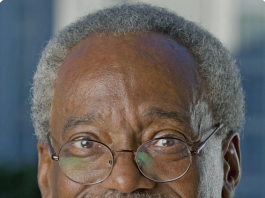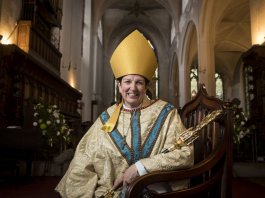Bishop Martin Warner emphazises how real it all was when Jesus was born in Bethlehem in this reflection offered at the Chichester Cathedral Carol Service on Sunday 20 December 2015
Looking recently at the range of modern kitchens on offer today (for reasons that need not delay us now!), I was completely bewildered. The high gloss, signature, Scandinavian range looked more like something Tim Peake might be using in outer space.
Back here on earth, the scale and specification of the great kitchen next door to the cathedral, built in the late 13th century to service the needs of the bishop’s household, continues to intrigue me.
Of itself, the unique hammer beam ceiling gives rise to speculation about how the cooking worked, but more importantly its huge scale speaks about the centrality of hospitality in a household that was built for that very purpose.
Imagining myself back into a time when the stable block, now a series of highly sought after residential units, was buzzing with horses, farriers, and endless itinerant workers, the image of a couple, economically fragile, and socially powerless, seeking urgent accommodation because she is about to give birth, seems remarkably real.
It’s real because the stable entrance is where you find those who have no right of access to established patterns of power. Today’s equivalent is similarly focused on modes of transport, and is to be seen in encampments around the channel tunnel in France.
It’s real because our celebration of the birth of Jesus Christ in a stable in Bethlehem marks a point in human history that identifies the revelation of God with specific time and place. This birth is about history, real flesh and blood, an actual person.
And the reality is that actual people still experience today what the holy family of Mary Jesus and Joseph experienced over 2000 years ago.
The story line of there being no room at the inn embraces but does not stop with the recognition of the plight of asylum seekers from across the world and across human history. The good news of Christmas takes us much further. In some ways it takes us back to the kitchen.
Mary, the mother of Jesus, was a visionary woman. She wove together the sacred texts of Israel in her song, the Magnificat, in order to make a song that points to a new and different future for all the people of the human race.
Mary sings of God’s capacity to bring powerful and powerless to the same place, lowering one, raising the other, so that they meet at a common table and can eat together. This same God will feed the hungry with good things.
Yes, the stable block, behind the kitchen, is symbolically the gateway for all pilgrims and wayfarers to find their way into the banqueting hall, which is one of the recurrent metaphors and symbols of the glory of life in heaven.
As this Christmas stands at the head of the Year of Mercy, let the doors of our churches, where hospitality must be the foundational virtue, be thrown wide open to welcome all who seek Jesus Christ, in whom we see the face of the God the Father’s mercy, and let our celebration of the birth of Jesus inspire us to know, love, follow him more generously in the year ahead.



